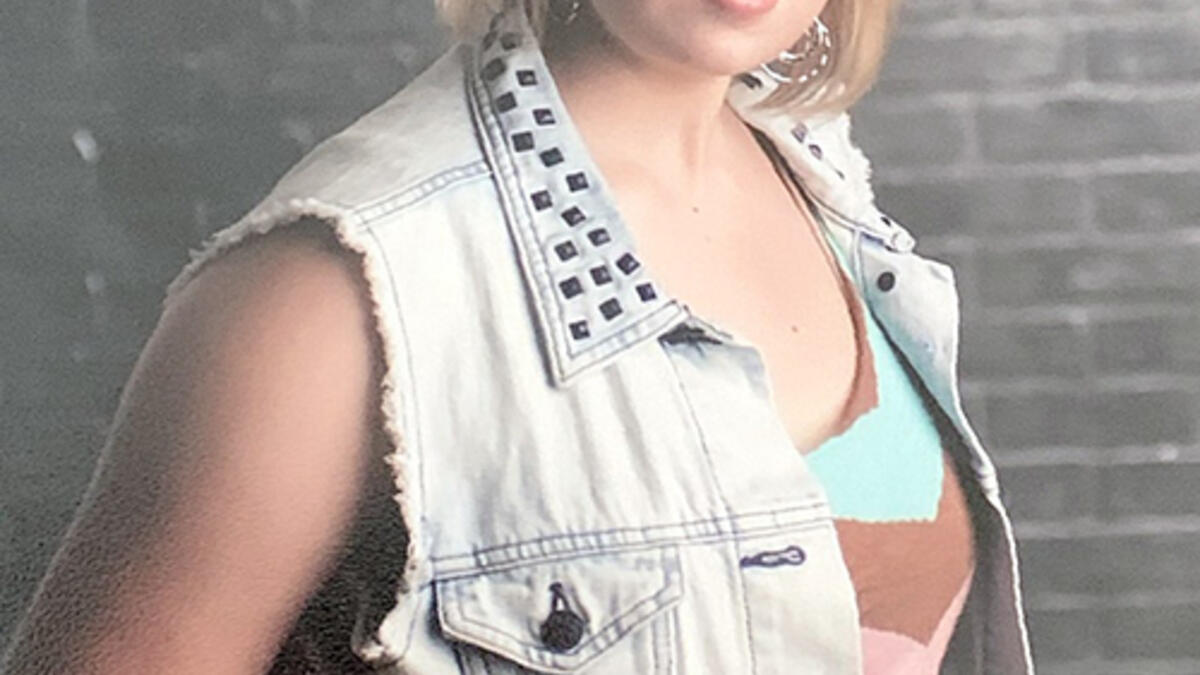Sociology grad’s academic journey to social work began with a childhood illness

Photo courtesy of Natalee Lauro
Editor's note: This story is part of a series of profiles of notable spring 2021 graduates.
Natalee Lauro is no stranger to difficult times. She was diagnosed with brain cancer at the young age of 8.
“The entire process was very depressing, painful and sometimes just completely soul-crushing," she said. "My social worker helped me through these difficult times and that is when I realized when I grew up, I wanted to be a social worker and help others just like those who helped me throughout my cancer and recovery experience.”
A first-generation graduate, Lauro is well on her way to make those dreams come true. She is graduating this spring with a major in sociology and a minor in communication.
Besides having a passion for helping others, she is also an avid animal lover. She is a firm believer that having a therapy dog during her recovery from brain surgery truly saved her life.
“I remember being stuck in the NICU and I couldn’t even open my eyes or pick up my head. One day, they brought a therapy dog in and she climbed into my bed. As soon as I felt that warm, furry body, I knew exactly what it was and I really think that was the turning point in my life because after that I started to progress. That is a big reason why I’m so passionate about animals.”
Lauro says she has really enjoyed her time at ASU and appreciates all the help and guidance given to her. She plans to continue to get her master’s degree through ASU in order to give back to the community, help others and strive to make a difference in the world. She shared a bit more of her experience by answering a few questions.
Question: What’s something you learned while at ASU — in the classroom or otherwise — that surprised you or changed your perspective?
Answer: I will say that during my time at ASU, I have learned a lot about myself and what I am capable of. It has always been my habit to underestimate and doubt myself. Throughout my many accomplishments at ASU, I’ve realized that I am capable of so much more than I give myself credit for.
Q: Why did you choose ASU?
A: I chose ASU for its outstanding reputation and for all the great things I have heard through my friends, teachers and members of the family.
Q: As an ASU Online student, what ASU resources did you take advantage of and find most helpful on your journey to completing your degree?
A: I personally found having a success coach, along with an academic adviser, Lisa Barth, the most helpful. As an incoming online student I was worried that I wouldn’t have a support system; I was nervous and fearful that I would be seen as just another number on the board. But I was pleasantly surprised to find how strong of a connection I was able to form with my success coach and how supportive and helpful my academic adviser was, together they both guided and steered me through my journey at ASU.
Q: Which professor taught you the most important lesson while at ASU?
A: Each one of my professors taught me unique and individual lessons that collectively all ring true and overall contribute into my work ethic, and that is to ask for help when needed, don’t sit there in silence because fear or shame hinders you. You must be brave and bold enough to ask for yourself, because no one else will.
Q: What’s the best piece of advice you’d give to those still in school?
A: There is a quote I refer to: “Mistakes are proof that I am trying." No one is perfect; we all make mistakes, but that is part of the educational journey — that’s part of life.
Q: What was your favorite spot for power studying?
A: My bedroom or the office is where I spent my time studying; secluded and quiet places are what helps me the most when studying.
Q: If someone gave you $40 million to solve one problem on our planet, what would you tackle?
A: I would tackle an issue that I am very passionate about and that is animal abuse. I love animals with all my heart and the thought of an animal being mistreated or neglected is enough to make me sick to my stomach. If someone gave me $40 million to solve this problem, all the money would go towards protecting animals, both domestic and wild.
More Arts, humanities and education

ASU professor's project helps students learn complex topics
One of Arizona State University’s top professors is using her signature research project to improve how college students learn…

Award-winning playwright shares her scriptwriting process with ASU students
Actions speak louder than words. That’s why award-winning playwright Y York is workshopping her latest play, "Becoming…

Exceeding great expectations in downtown Mesa
Anyone visiting downtown Mesa over the past couple of years has a lot to rave about: The bevy of restaurants, unique local shops…

